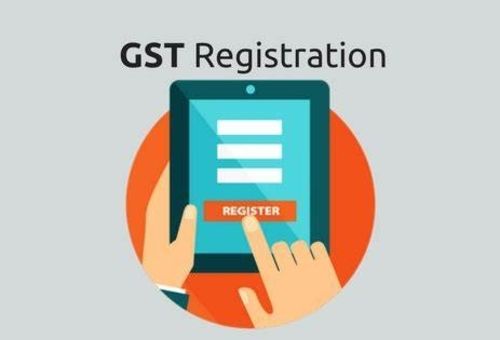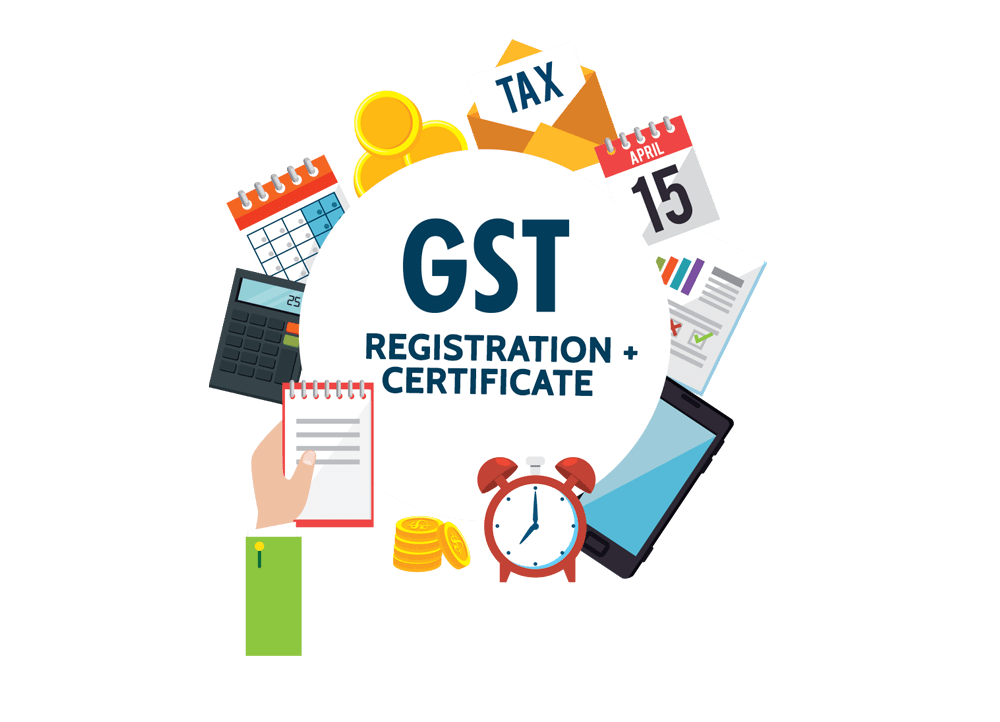Comprehending the Benefits of Singapore GST Registration for SMEs
Browsing the Complexities of GST Enrollment: Professional Tips and Finest Practices for Smoother Conformity
Navigating the intricate landscape of Item and Provider Tax Obligation (GST) enrollment requires an eager understanding of the progressing regulative framework and careful focus to information. As organizations make every effort to guarantee compliance and prevent risks, specialist guidance and ideal practices can serve as important compass factors in this complicated surface. From analyzing registration demands to utilizing technological tools for structured processes, the journey towards smoother GST compliance is multifaceted and nuanced. Remain tuned to discover necessary strategies and insights that can aid businesses guide through the complexities of GST enrollment with finesse and self-confidence.
Recognizing GST Registration Requirements

Along with turnover thresholds, companies taking part in interstate sales or supplying taxable services might likewise be needed to sign up for GST, also if their turnover is listed below the suggested limitation (Singapore GST Registration). Recognizing these limits and demands is necessary to avoid fines and make sure smooth procedures within the lawful structure
Additionally, businesses have to gather and prepare the needed paperwork, such as proof of identification, address, service incorporation, and savings account information, prior to launching the GST registration procedure. Failing to provide precise details or satisfy the registration target dates can cause fines or other legal repercussions. Consequently, companies ought to remain informed concerning the specific GST enrollment needs suitable to their operations to keep compliance and stay clear of potential concerns.
Organizing Vital Documentation
Companies beginning on the GST enrollment process must meticulously compile and arrange the essential paperwork needed for submission. The vital files typically required for GST registration include proof of company enrollment or address, identity and consolidation proofs of business owners or partners, savings account information, proof of major business, and authorization forms. Guaranteeing that these documents are easily available and organized can improve the registration procedure and protect against denials or delays.
To properly organize vital documents, services ought to produce a centralized system for keeping and categorizing the called for documents (Singapore GST Registration). Utilizing electronic storage services can assist preserve simple gain access to and make sure that papers are safely kept. In addition, developing a checklist of all essential documents can work as a handy tool to track what has actually been collected and what is still needed for submission

Leveraging Modern Technology for Effectiveness
Enhancing operational efficiency via technological integration is paramount for contemporary companies navigating the intricacies of GST registration. Leveraging modern technology can streamline processes, decrease mistakes, and make sure prompt conformity with GST regulations. One of the key means modern technology can aid in GST enrollment is with the usage of automated software program options. These devices can assist services track sales, anonymous produce invoices, calculate tax obligations, and submit returns precisely. By automating these jobs, organizations can decrease look what i found hands-on mistakes and save time that would or else be invested in recurring management work.
In addition, modern technology can promote seamless interaction with tax authorities. On the internet sites and interaction tools allow services to send documents, resolve inquiries, and receive updates in a more efficient manner. This not only quickens the registration process but additionally aids in preserving reputable and transparent interaction with the appropriate authorities.
In addition, cloud-based storage services offer a safe system for services to shop and accessibility their economic information, making sure conformity with GST record-keeping demands. By centralizing data storage space and automating processes, organizations can boost their overall effectiveness and precision in GST registration procedures.
Proactive Conformity Tracking

To ensure effective aggressive compliance tracking, businesses must establish robust inner controls, conduct periodic audits, and utilize automation tools for real-time tracking of GST purchases. Regular training sessions for workers on GST conformity needs can also help in developing a culture of conformity within the company. Furthermore, engaging with tax consultants or professionals can offer useful understandings and guidance on browsing intricate GST policies.
Involving With Specialist Experts
Engaging seasoned tax obligation consultants can significantly boost a company's understanding and conformity with detailed GST guidelines. Professional consultants bring a wealth of knowledge and experience to the table, assisting companies navigate the intricacies of GST look at this now enrollment easily. By leveraging their proficiency, firms can make certain accurate filings, lessen the danger of mistakes, and stay updated with the most current governing changes.
When involving with specialist consultants, it is vital to choose specialists with a solid performance history in GST conformity (Singapore GST Registration). Look for professionals that have a deep understanding of the relevant legislations and policies, along with experience collaborating with businesses in your industry. Effective communication is essential in this partnership, so make certain to plainly define your expectations and establish regular touchpoints to talk about progress and resolve any type of problems
Additionally, professional consultants can give useful insights and advice on maximizing your tax method, identifying potential cost-saving possibilities, and simplifying your compliance procedures. Overall, purchasing expert consultancy services can go a lengthy means in guaranteeing smoother GST compliance and avoiding expensive mistakes.
Final Thought
In final thought, navigating the intricacies of GST enrollment needs a complete understanding of the needs, organization of crucial documents, leveraging technology for performance, positive compliance monitoring, and interaction with professional specialists. By following these finest methods, organizations can guarantee smoother conformity with GST laws and prevent potential charges or penalties. It is important to remain informed, positive, and thorough in managing GST enrollment to keep conformity and maintain economic stability.
To make certain conformity with tax policies, businesses need to completely recognize the detailed needs for GST enrollment. Goods and Provider Tax (GST) is a value-added tax obligation levied on a lot of products and solutions in a nation, making it vital for companies to register for GST to avoid lawful repercussions.In addition, companies must gather and prepare the needed paperwork, such as evidence of identity, address, company consolidation, and financial institution account details, prior to starting the GST enrollment process. Companies should stay educated about the specific GST enrollment needs applicable to their procedures to preserve compliance and prevent prospective concerns.
The crucial papers usually needed for GST enrollment include evidence of company enrollment or address, unification and identification evidence of the organization proprietors or companions, bank account details, evidence of principal location of business, and permission kinds.